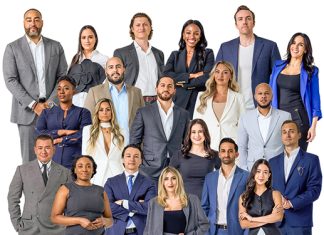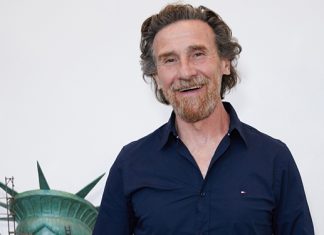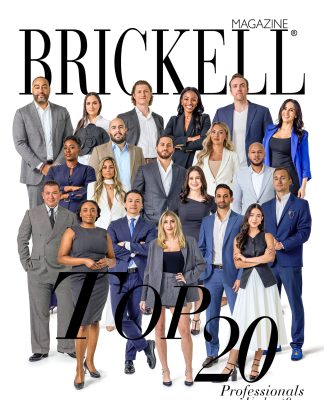 “I love Five Nights At Freddy’s, but sometimes it’s so totally cringe,” chirps Isabella, a 9-year-old relative. At least, I think that’s what she said. In truth, I’d been engaging this particularly precocious child for roughly a quarter hour with little to no comprehension of neither her opinions, nor, indeed, the subject matter to which her opinions are attached to. And I’m in awe. I am, for full disclosure’s sake, 30 years young, graced to be born in a period where a seemingly never-ending adolescence was regarded as both right and privilege. I’m stuck outside the current compass of the up-and-coming generational compass, rather than fear, is excitement, a feeling of courageous consideration not dissimilar to those of arctic explorers and physicists probing the cutting-edge. What Brave New World of wonders will the activists, artists and entrepreneurs of our tomorrow craft for us? And how can I be a part of it?
“I love Five Nights At Freddy’s, but sometimes it’s so totally cringe,” chirps Isabella, a 9-year-old relative. At least, I think that’s what she said. In truth, I’d been engaging this particularly precocious child for roughly a quarter hour with little to no comprehension of neither her opinions, nor, indeed, the subject matter to which her opinions are attached to. And I’m in awe. I am, for full disclosure’s sake, 30 years young, graced to be born in a period where a seemingly never-ending adolescence was regarded as both right and privilege. I’m stuck outside the current compass of the up-and-coming generational compass, rather than fear, is excitement, a feeling of courageous consideration not dissimilar to those of arctic explorers and physicists probing the cutting-edge. What Brave New World of wonders will the activists, artists and entrepreneurs of our tomorrow craft for us? And how can I be a part of it?
 But first, a pause. Before heedlessly launching myself into the ethernet-fueled aether of our most science-fictional of generations, terms must be defined. Dubbed alternately the iGeneration, the Homeland Generation (referencing the cohorts close chronal ties to the events of 9/11), Plurals, Gen Wii, or most commonly, Generation Z, is typically defined as being composed of individuals born at or after 1995. Of immediate note for this formidable age of up-and-comers is their enmeshment with information architecture and intuitive knowledge of data-based technologies in a mode not dissimilar to our ancestors’ intimacy with the waxing and waning of seasons. The question is not whether or not this generation will be dramatically different as a result of being reared under this zeitgeist, but will it spell any difference? As I write this, we are immersed in a world whose geopolitical situation (tension with Russia, issues of race and gender at the forefront of our conscience) remains depressingly indistinguishable from the previous. What will this generation provide? And how will it affect the entrepreneurial sphere that these adolescents seem so attracted to? Big questions.
But first, a pause. Before heedlessly launching myself into the ethernet-fueled aether of our most science-fictional of generations, terms must be defined. Dubbed alternately the iGeneration, the Homeland Generation (referencing the cohorts close chronal ties to the events of 9/11), Plurals, Gen Wii, or most commonly, Generation Z, is typically defined as being composed of individuals born at or after 1995. Of immediate note for this formidable age of up-and-comers is their enmeshment with information architecture and intuitive knowledge of data-based technologies in a mode not dissimilar to our ancestors’ intimacy with the waxing and waning of seasons. The question is not whether or not this generation will be dramatically different as a result of being reared under this zeitgeist, but will it spell any difference? As I write this, we are immersed in a world whose geopolitical situation (tension with Russia, issues of race and gender at the forefront of our conscience) remains depressingly indistinguishable from the previous. What will this generation provide? And how will it affect the entrepreneurial sphere that these adolescents seem so attracted to? Big questions.
 No longer simply up-and-coming, Artist, Entrepreneur, Musician & Activist Skyler Grey is a landmark example of the length, breadth and drive of Generation Z’s influence. The youngest artist to ever be exhibited internationally, he represents, above all, an optimism rarely found in my own peer base. “I have no doubt this generation will be the one to change things,” he says. “And I really think my art is relevant because it can change the world.” Comfortably smashing any pretentious conceptions, Grey, who is represented solely by Miami-based Avant Gallery, is just as comfortable designing ad campaigns for such industrial behemoths as McDonald’s as he is hobnobbing with underground artists in the community. And, although of a generation now typified as overly skeptical of higher education, Grey is less suspicious as he is open-minded and informed of what a 4-year university (and its accompanying crushing pricetag) can offer him. “College is always an option,” says Grey, who’s taking a year off to, among other things, visit Art Basel’s Switzerland arm for the first time, “but opportunity comes and goes.”
No longer simply up-and-coming, Artist, Entrepreneur, Musician & Activist Skyler Grey is a landmark example of the length, breadth and drive of Generation Z’s influence. The youngest artist to ever be exhibited internationally, he represents, above all, an optimism rarely found in my own peer base. “I have no doubt this generation will be the one to change things,” he says. “And I really think my art is relevant because it can change the world.” Comfortably smashing any pretentious conceptions, Grey, who is represented solely by Miami-based Avant Gallery, is just as comfortable designing ad campaigns for such industrial behemoths as McDonald’s as he is hobnobbing with underground artists in the community. And, although of a generation now typified as overly skeptical of higher education, Grey is less suspicious as he is open-minded and informed of what a 4-year university (and its accompanying crushing pricetag) can offer him. “College is always an option,” says Grey, who’s taking a year off to, among other things, visit Art Basel’s Switzerland arm for the first time, “but opportunity comes and goes.”
Striding through the halls of a work space more at home in an episode of Silicon Valley than the humble corner of Overtown it occupies, Jeannine Schloss of the Network For Teaching Entrepreneurship, or NFTE, gives me the point-of-view of a professional intimately acquainted with the powerful potential of today’s Miami youth. When pressed about the effect ubiquitous smart tech has on the development of our youth, Schloss, like Grey, offered a refreshingly optimistic note. “I’ve watched kids put technology to use to help our society, to help their communities,” she says. “We have a tech program that teaches youth to create an app-based business and what we’ve noticed time and time again is that, due to the presence of technology, they are much more socially aware than I was as a child.”
 Director of a program tasked with building startup skills and activating a healthily entrepreneurial mindset in youths from under-resourced communities, Schloss’s status as director has put her in contact with a number of remarkable members of Generation Z, not the least of which is Kaina Lisibach. Founder & CEO of nonprofit One Step Closer at the tender age of 18, the prime problem she finds with elder generations is their lack of imagination. “The world is changing at a pace that’s never been seen before,” she says. “In order to keep up, one must be open to new trends, perspectives and opinions; not be adamant in the ways of the past.”
Director of a program tasked with building startup skills and activating a healthily entrepreneurial mindset in youths from under-resourced communities, Schloss’s status as director has put her in contact with a number of remarkable members of Generation Z, not the least of which is Kaina Lisibach. Founder & CEO of nonprofit One Step Closer at the tender age of 18, the prime problem she finds with elder generations is their lack of imagination. “The world is changing at a pace that’s never been seen before,” she says. “In order to keep up, one must be open to new trends, perspectives and opinions; not be adamant in the ways of the past.”
As optimistic as Grey and Schloss are regarding the positive impact the increasingly accepting generation in question will ensure, Lisibach seems palpably pumped for her and her peers’ future on the world stage. “I feel that my generation will promote the characteristic of being open-minded, they will help shape a society where being different is celebrated and accepted. And I believe that will result in a much more open world as a whole.” Kaitlyn Smith, another graduate of NFTE, is similarly hopeful for her (and, by extension, our city, our nation and indeed our world’s) future, although she’s careful to temper that hope with the examples of her upbringing. “Growing up in Miami, I really learned the value of hard work,” says Smith, who finds an unfortunate stereotype of her generation is one of general laziness. “Being surrounded by immigrants who came here to seek asylum showed me that freedom isn’t free and success isn’t just given.”
Forward-thinking. Hard working. Expressive. Endlessly entrepreneurial, while at the same time freely focused on the social and environmental impact of their actions. Tech-savvy rationalists utterly unsure of what the difference between artistic impulse and business acumen actually looks like. I fear, that, at the end of my investigation, I find myself just as confused as when I set out in search of answers to a generation of conundrums.
Did I define the inherently hopeful traits of a rising generation? Or am I (like so many other Millennials are accused) simply pinning my hopes, desires and security on someone other than myself? Whatever the case, if our current decade is any indication, the future that will be tucked within the palms of our rising generation is sure going to be one wild ride!











